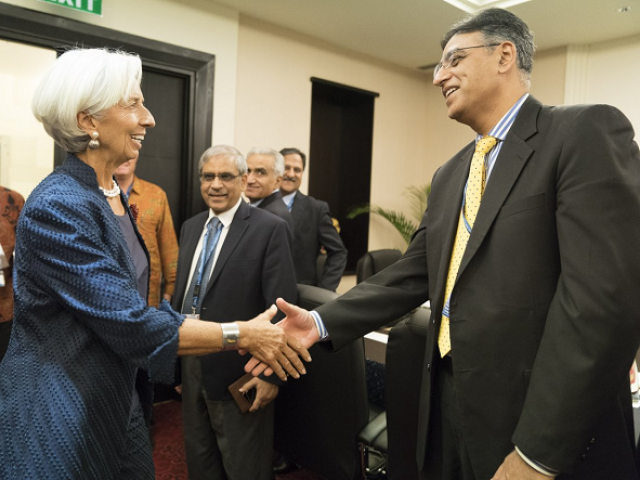
Pakistan was last year expected to sign up for its 13th IMF bailout programme since the late 1980s but talks ground to a halt, with officials saying the conditions attached to the proposed IMF loans could hurt economic growth.
The country’s macroeconomic outlook has deteriorated in recent months, with the central bank lowering growth forecasts and raising rates at a time when inflation is at a five-year high. The rupee has also lost about 35 per cent since December 2017.
"At the request of the authorities, an IMF mission will be going to Pakistan before the end of April to continue the discussions," the IMF said in a statement.
Contrary to IMF claims, Pakistan's economy can grow over 3.5%
Finance Minister Asad Umar earlier this month visited Washington for talks with the IMF, which on Monday described those talks as "constructive discussions".
The government has obtained temporary relief from close allies such as China and Saudi Arabia with short-term loans worth more than $10 billion to buffer foreign currency reserves and ease pressures on the country's current account.
But analysts have been saying an IMF bailout is inevitable, with Pakistan also facing an increasing fiscal crunch ahead of the annual budget spending review for the next financial year starting July 1.
"After today's IMF statement, the expectation is that the bailout is pretty much there," said Saad Hashemy, Chief Economist for brokerage house Topline Securities.



1732256278-0/ellen-(1)1732256278-0-165x106.webp)
1725877703-0/Tribune-Pic-(5)1725877703-0-165x106.webp)
1732257537-0/Copy-of-Untitled-(64)1732257537-0-270x192.webp)
1726722687-0/Express-Tribune-Web-(9)1726722687-0-270x192.webp)










COMMENTS
Comments are moderated and generally will be posted if they are on-topic and not abusive.
For more information, please see our Comments FAQ